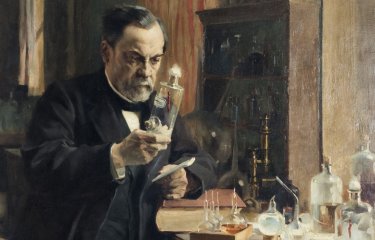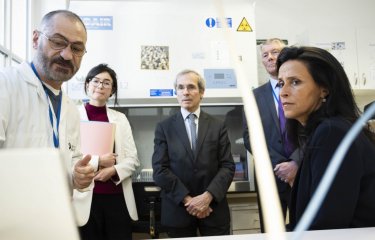In view of the ongoing war in Ukraine, the Institut Pasteur is providing funding to host Ukrainian scientists in its research laboratories.
The Institut Pasteur, a foundation with recognized charitable status, is an internationally renowned biomedical research center recognized for its expertise in infectious diseases, microbiology and immunology. In line with its humanitarian values, the Institut Pasteur shares the desire to strengthen international scientific cooperation in this tragic situation.
If you are a Ukrainian scientist – a PhD student, principal investigator, etc. – and are looking for an organization where you will be able to pursue your research, the Institut Pasteur in Paris would be happy to welcome you.
More than 60 laboratories on our campus have volunteered to host you so that you can continue to use your experience and skills to serve the biomedical research community by contributing to the research conducted in your host laboratory.
We would invite you to make direct contact with the head of a host laboratory to discuss potential avenues for collaboration (see the list and contacts here), which will then be reviewed and submitted to the Institut Pasteur's Department of Scientific Affairs for a final decision.
More information about the practical aspects (housing, schools, etc.) for scientists who are confirmed to be coming will be provided at a later stage.
- See the press release on the Institut Pasteur's support for Ukraine here.
- See the call by European ministers for higher education and research to strengthen international scientific cooperation: Ministerial Conference on a Comprehensive Approach to Research, Innovation and Higher Education - French Presidency of the Council of the European Union 2022 (europa.eu)
More information about the Institut Pasteur
The Institut Pasteur, a non-profit foundation with recognized charitable status set up by Louis Pasteur in 1887, is an internationally renowned center for biomedical research with a network of 33 members worldwide. Its research investigates the biology of living systems and particularly molecules, cells, tissues, living organisms, and host-microbe interactions in emerging infectious diseases (COVID-19, Ebola, Zika, etc.), antimicrobial resistance, certain cancers, neurodegenerative diseases (Alzheimer's and Parkinson's disease, etc.), and brain connectivity disorders (autism, depression, etc.). This research is facilitated by the development of a technological environment of the highest standard, with core facilities for nanoimaging, computational biology and artificial intelligence. More than 2,800 people work on its Paris campus.





